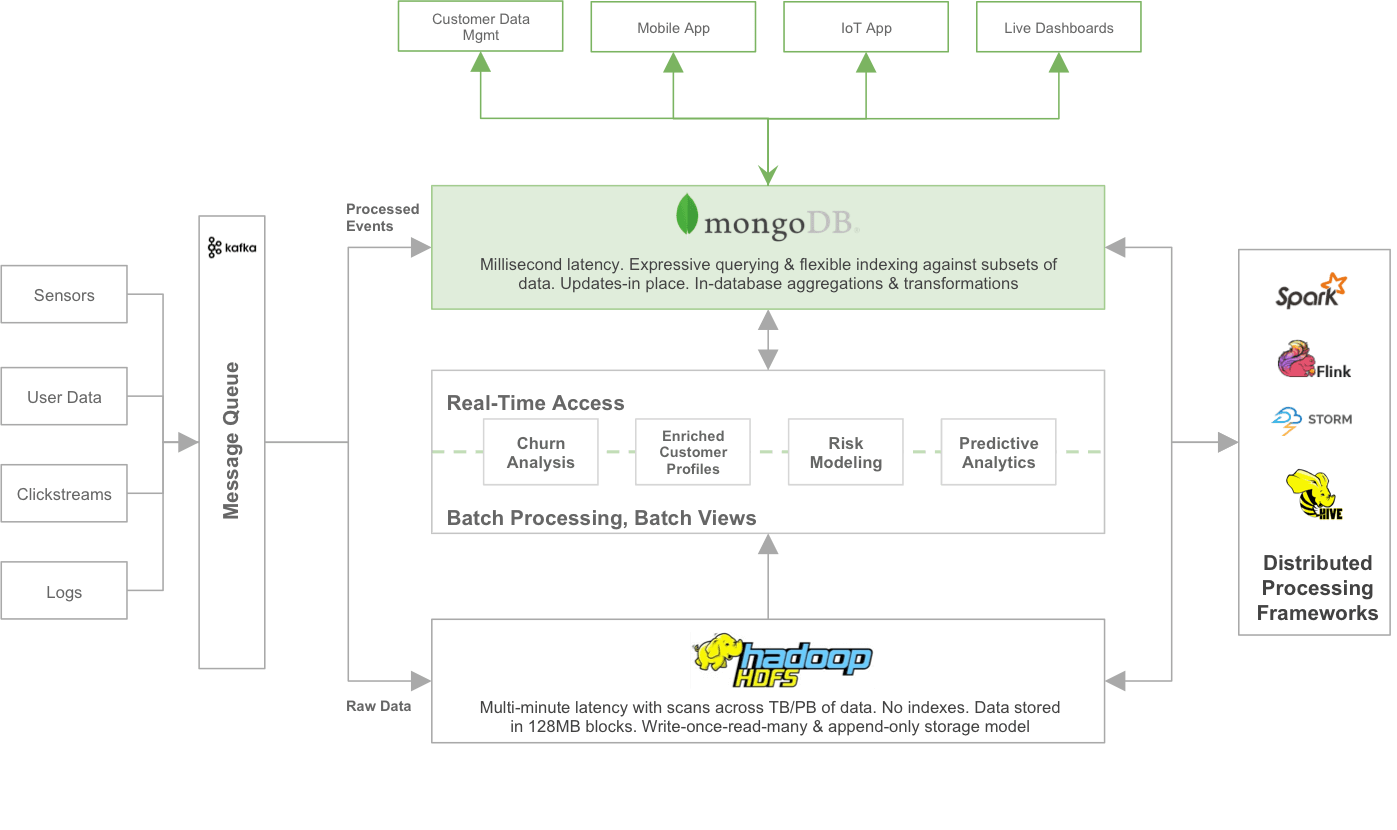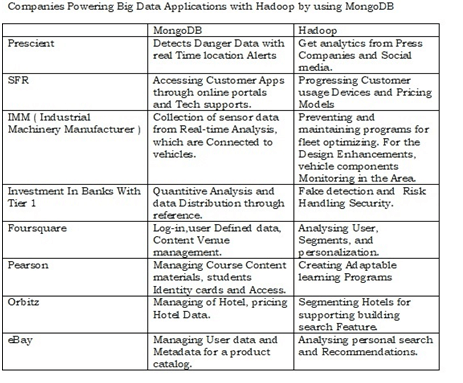
Hi, this is Onlineitguru, now I am going to explain you about the Importance of MongoDB in Big Data Hadoop, first of all, my dear techies, what is MongoDB,it introduces Innovations that make your career more productive with less coding skills, it is introducing more updated apps in market, giving experience by global scale or by unlocking your intelligence for your next Move in technology.
The Main Moto Of MongoDB are:
1) Fast to develop 2) Fast to scale 3) speed to Insight 4) Run Anywhere
Get in touch with OnlineITGuru for mastering the Big Data Hadoop Online Course
Now, we will see how MongoDB is modifying the Business of Big Data Hadoop , modern technology is vast, it is huge and difficult to understand, for what it will do and try to store, process and analyze.
The leading Database is NoSQL, MongoDB is special for some reasons, it is the main database component used by MEAN software stack, it is open source to everybody and a cross-platform compatible. Friends it also contains some inbuilt, features you can take it as an excellent option for your business, which needs comfort access to their data, for making it real time, on flowing decisions, to create simplified data-driven, advancement for users, it is not limited version for MEAN STACK , it is convenient for.NET apps and Java Platform, from few years MetLife,ADP, the weather channel, Bosch,Expedia are using.
How MongoDB is able to meet your challenges :
1)By storing large Volumes of data :
Relating databases will store data like telephone Directory, for developing an unstructured data like customer’s purchases, facebook likes,preferred location, by NoSQL database sets with no limits, which allows your preferred data as you need, because our MongoDB is elasticand Document based. How can you store your data? by binary datapoints know as BSON I one single place without defining what types of data those are in advance.
2)Cloud Computing and Storage:
The best option you have is cloud-based storage and it is a Cost saving Option, but it needs data to be easily distributed, across so many servers to measure. As a result MongoDB can upload high-End data and gives you lasts of elasticity and comfort-ability in Cloud-based Community, Moreover by the sharing solutions for partitioning data across multiple Servers.
||{"title":"Master in Big Data Hadoop ","subTitle":"Big Data Hadoop Training by ITGURU's","btnTitle":"View Details","url":"https://onlineitguru.com/big-data-hadoop-training.html","boxType":"reg"}||
3)Offer Quickly and Develop:
Friends, for example if you want to develop, Agile sprints within two weeks by modifying relating database, will down you, with our MongoDBTechnical Schema, At the same time you can do it,
Now I will explain to you how companies are using MongoDB With Hadoop
In the same way Every client should take analytical outputs from Hadoop from their Online Application Apps, this app is specially designed and cannot meet HDFS Including:
1) Updating Frequently changing Data, by real-time Experts while users can Interact with every Online Application, without changing any Data. However Providing every analytical output from Hadoop to online applications and clients in real time needs, highly measurable Integration Platform, with the Elastically Operated database.
2) In other words Supporting Adhoc queries on data by constructing Online Applications, Intelligent and Contextual.
3) The Indexed Subsets Of data can be accessed Randomly
4)Query Responses are Available In millisecond Span of time.
Now I will Explain you how about the design pattern for Integrating the MongoDB with a data lake 
- Besides Distributed Frameworks like aspark or MapReduce options, form batch views against them with real-time reactions.
- MongoDB shows these methods to the operating process, In particular serving Queries and updations against them with real-time responses.
- Equally Important Data streams injected into a pub/sub,messaging queue, which will route, all raw data into HDFS. Already processed Events that drive exact actions. Consequently Such as engaging an offer to the client, browsing an Internet Page, or alert for vehicle automated communications are routed to MongoDB For Immediate Intake by Operating Applications.
Advantages of MongoDB:
- Namely 1000 Times faster than Traditional Database
2) To illustrate It is a Collection of the document, in which one collection catches so many documents. 3) In particular Design of a single Document is clear In MongoDB 4)Not to mention no complex joins in MongoDB 5) In particular Easy to measure 6 Moreover It uses it an inbuilt memory for storing working sets and this is the reason for its fast processor.
Recommended Audience:
Software developers ETL developers Project Managers Team Lead’s Business Analyst Get in touch with OnlineITGuru for mastering the Big Data Hadoop Online Training
Prerequisites: Prerequisite for learning Big Data Hadoop. It’s good to have a knowledge of some OOPs Concepts. But it is not mandatory. Trainers of online guru will teach you if you don’t have a knowledge of those OOPs Concepts.
